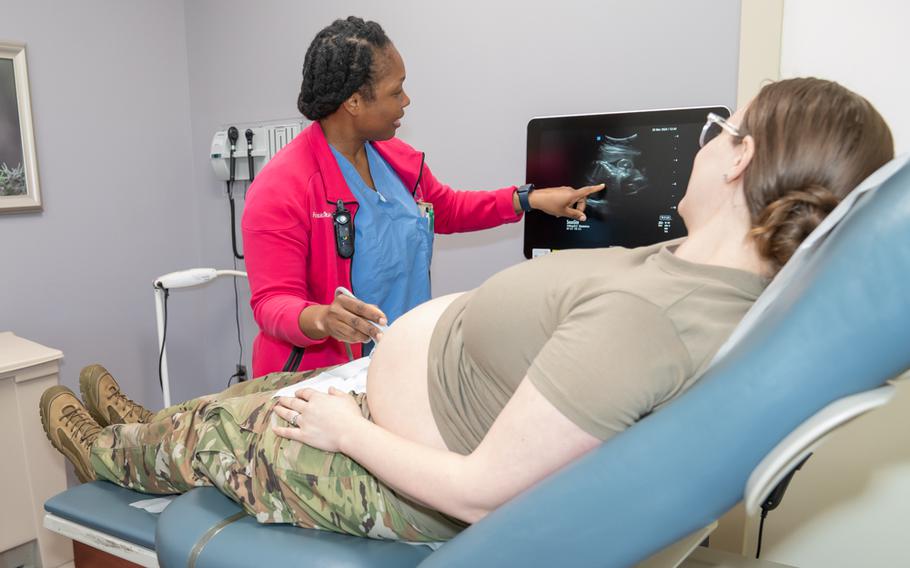
Lt. Col. Francesca Desriviere, a certified nurse midwife at Martin Army Community Hospital at Fort Moore, Ga., conducts an abdominal ultrasound during a routine obstetrics appointment. (Ronald Mooney/Martin Army Community Hospital)
WASHINGTON — Pregnant service members and new mothers in the military who are struggling with mental health issues could see additional support under a new Senate bill.
The legislation spearheaded by Sen. Jeanne Shaheen, D-N.H., and co-sponsored by Sen. Deb Fischer, R-Neb., aims to launch a pilot program within the Defense Department that would establish perinatal mental health prevention programs at military treatment facilities throughout the country.
Women in military service are more likely than civilians to experience a mental health diagnosis during pregnancy and the year after giving birth — a time span referred to as the perinatal period.
“All too often, the mental health needs of new moms fall to the wayside as they adapt to life with a newborn — and this rings especially true for the brave women serving in our military,” Shaheen said.
About 36% of the beneficiaries of Tricare, the military’s health care program, received a mental health diagnosis during their perinatal periods, according to a 2022 study by the Government Accountability Office. Similar diagnoses are seen in about 20% of women in the general population.
“This should be a wake-up call that we must do more to support [service women],” Shaheen said.
Anxiety, depression and trauma- and stressor-related disorders were the most common diagnoses. These conditions can interfere in the lives of mothers and their babies, disrupt maternal-child bonding and impact family life, according to research cited by the GAO.
Beneficiaries of Tricare, which include service members and their families, are believed to be at a higher risk for diagnosis due to isolation from social support networks and separation from deployed spouses.
The bill touted by senators would create an advisory committee of service members, beneficiaries and experts to provide input on the proposed pilot program. The program would be implemented in “geographically diverse sites,” according to the legislation.
The GAO study noted offering mental health services within women’s health clinics improved access to treatment by eliminating stigma for service members who do not want to be seen going into a mental health clinic.
The Senate bill would allocate $5 million per year for the proposed pilot program to be spent from fiscal 2025 to 2029. The Defense Department then would be required to submit a study on the effectiveness of the program and whether it was successful in preventing or reducing perinatal mental health conditions.
“Service women sacrifice so much for our nation — it’s our duty to ensure they have access to the best mental health care possible before and after they give birth,” Shaheen said.